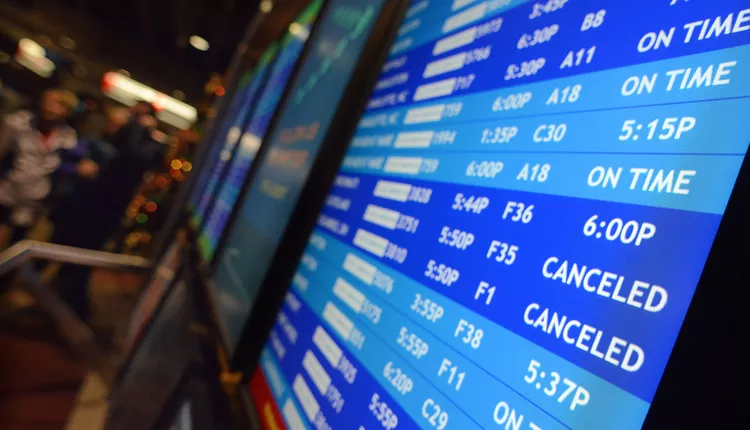Summary
Airports with the Highest Delays
According to the Federal Aviation Administration, weather delays at the New York City area’s three biggest airports—Newark, LaGuardia, and Kennedy—are among the highest in the country. They sometimes witness nearly 60,000 delays of 15 minutes or more. Other major airports experiencing significant delays include Chicago O’Hare and Midway, Philadelphia, San Francisco, and Atlanta.
However, weather is not the sole factor contributing to these delays. The FAA indicates that if an airport has ample capacity, delayed flights can be rescheduled without causing disruption. Conversely, airports that frequently experience weather delays tend to operate close to capacity, leading to longer wait times for delayed flights to land or take off.
Airline Policies for Weather Cancellations
If your flight is canceled due to weather events—such as tornadoes, hurricanes, blizzards, fog, or floods—airlines typically have policies to accommodate travelers. Here’s what you should know:
- Flexible changes to tickets: Airlines generally waive ticket change fees and allow flights to be rebooked within seven days of the originally scheduled date.
- Change your ticket completely: Airlines may permit you to apply the full value of your unused ticket toward a flight to a different destination.
- Change ticket without penalties: Carriers may allow a one-time change without fees if you stay on the same itinerary.
- Refunds and partial refunds: In severe weather, airlines may offer refunds for unused tickets or even the unused portion if travel has commenced.
Handling Weather-related Cancellations
To effectively manage unexpected cancellations, consider the following steps:
- Call ahead or check your airline’s website for flight status. If the roads are treacherous, the runways likely are too.
- Enroll in an airline’s flight status messaging service for real-time updates. You might also consider a service like Flight Aware for flight tracking.
- Use the Next Flight app to search for alternative flights in case yours is canceled; provide flight numbers to agents for rebooking.
- Bookmark this list of airline phone numbers, compiled by travel expert Johnny Jet. This may help you avoid long lines at the airport.
- Understand your rights; most airlines include a Contract of Carriage that details passenger rights during delays and cancellations.
- At the airport, check both departure and arrival screens to gauge potential rebooking options.
- If you have a connection, ask if you should visit the ticket counter or a designated connecting passengers’ desk. Airlines often assist transit passengers during unforeseen delays.
Furthermore, checking the weather at your destination can provide insights into the likelihood of your flight’s operation.
Your Rights During Tarmac Delays
The U.S. Department of Transportation’s consumer rules prevent U.S. airlines from keeping aircraft on the tarmac for more than three hours without deplaning passengers, though exceptions are made for safety or if advised by air traffic control.
During such delays, airlines must provide passengers with adequate food, potable drinking water within two hours, and maintain functional lavatories. Medical attention must also be accessible when necessary.





